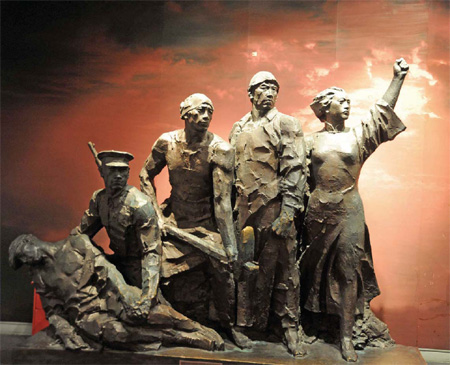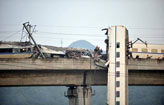Tips and Articles
City of soldiers
Updated: 2011-07-29 11:28
By Zhang Xi (China Daily European Weekly)
|
 The August 1 Uprising Museum in Nanchang is an important institution because it is the birthplace of the Red Army. Provided to China Daily |
The capital of East China's Jiangxi province is the proud birthplace of the world's biggest army
In 2006 the Chinese government designated Nanchang as a "Historical and Cultural City" thanks to its 2,200 years of history and profound cultural heritage. The literal meaning of Nanchang is "southern prosperity" and owing to its central location relative to the Yangtze and Pearl River Delta regions, the city is a major railroad hub in East China.
In modern times it has taken on new fame as the birthplace of the armed forces of the Communist Party of China (CPC).
In ancient times Nanchang was praised in the famous Essay on Tengwang Pavilion and this 1,300-year-old structure is certainly a top priority when visiting this charming city.
1. Tengwang Pavilion
Prince Li Yuanying, the younger brother of the then emperor, built this magnificent pavilion in AD 653 during Tang Dynasty (AD 618-907). However, the original pavilion was destroyed by fire in 1926 during the battle of the warlords. Between 1983 and 1989 the local government rebuilt the pavilion to make it even more spectacular and magnificent than its predecessor.
Reached by a zigzag bridge and surrounded by rock gardens and lakes, the new pavilion was built in the architectural style of the Song Dynasty (960-1279). The main building has a total floor area of 13,000 square meters. It sits atop a 12-meter tall concrete platform, which symbolizes the old city wall.
The glazed jade-green tiles on the roof, pretty eaves, and red pillars all indicate the elegance of the pavilion, whose interior is decorated with various basso-reliefs and frescos.
Apart from internal decoration, there is a stage for today's performers to simulate music and dance shows in Tang Dynasty.
The streets around the pavilion are full of restaurants and souvenir shops, which conform with the ancient style. This area has become the center of Nanchang's antiques trade.

Specials

Wen pledges 'open' probe
Design flaws in the signal equipment led to Saturday's fatal high-speed train collision, authorities say.

Turning up the heat
Traditional Chinese medicine using moxa, or mugwort herb, is once again becoming fashionable

Ciao, Yao
Yao Ming announced his retirement from basketball, staging an emotional end to a glorious career.